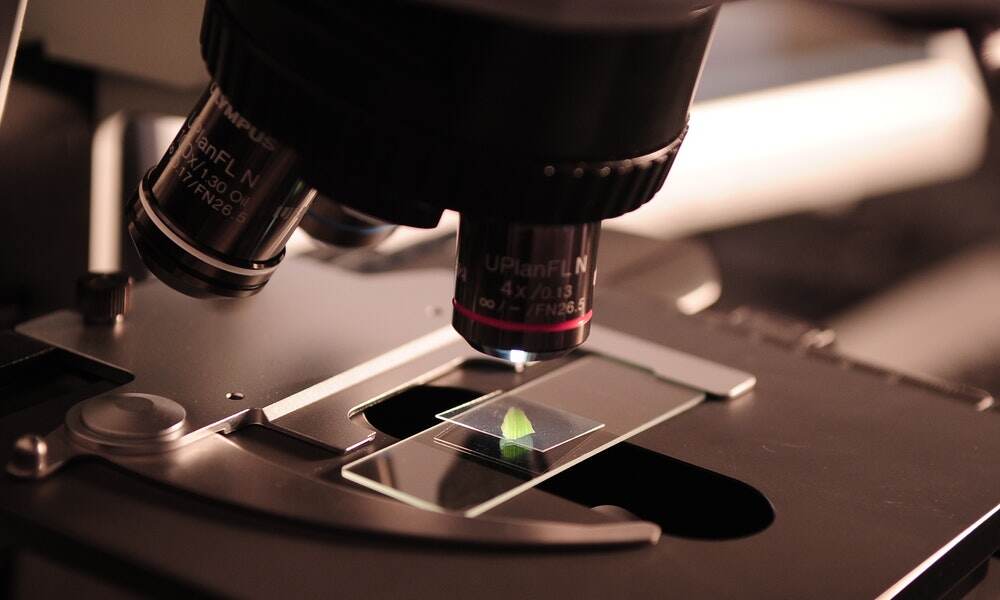The science field is that field of discovery that seems to provide a reason for every phenomenon we can ever think about—sounds cool and interesting. But, it leaves you with more questions to ask, creating a never-ending cycle of curiosity about everything within our reach. Oftentimes, it may sound unimaginable but to some extent scientific studies are real. Generally, science shapes the planet we find ourselves in and further enlightens us with what is beyond our planet. The field of science is broad and can’t be exhausted. However, we have compiled 100 fascinating facts about science that will leave you at the edge of your seat.
Amazing Science Facts
1. The first evidence of science dates back to ancient Egypt and Mesopotamia around 3000 to 1200 BCE.
2. The light from the sun reaches the earth in about 8 minutes— Photons emitted from the Sun must travel across the vacuum of space to reach the earth.
3. It’s impossible to taste food without saliva on the tongue because it’s the saliva that helps dissolve the chemical from the food.
Related: 100 Fascinating Facts About Food
4. Planets like Jupiter, Neptune, and Uranus are made up of gasses, void of solid surface. Therefore, it’s impossible to walk on foot.
5. Earth’s atmosphere is made up of 78% nitrogen and 21% oxygen.
6. Those who study science are called scientists. They are motivated by curiosity and desire to provide solutions to perplexing human problems.
7. An average active person takes about 7,500 steps per day. When compiled in an entire lifetime, it’s equivalent to going five times around the world.
8. There are about 10 million species of living beings on earth.
9. Social sciences focus on the study of humans and society, this includes economics, psychology, and sociology.
10. Across the entire universe Octopus are the only living thing with three hearts, nine brains, and blue blood.
11. Surprisingly, the stars on Earth are more compared to the grain of sand on earth.
12. Our known universe is made up of 50,000,000,000 galaxies— The Milky Way is but one of billions of galaxies in the observable universe.
13. Research shows that hot water freezes faster than cold water—you can always try that out.
14. 1 million Earth could fit inside the sun. In essence, the sun is about 3,000,000 times bigger than the earth.
15. Did you know that your heart beats around 100,000 times a day?
16. Logic reasoning, mathematics, and computer studies are all grouped under formal sciences.
17. The moon has no light of itself, it’s simply the reflection of the sun.
18. The human brain is able to take in 11milion bits of information every second.
19. The instability of the gravitational pull from the sun and moon is what leads to the high to low ocean waves and tides.
20. The highest mountain known to man is called Vesta, found in an asteroid that is about thrice the height of mount Everest here on earth.
21. The blood cell makes a complete circuit in the body within seconds.
22. Neil Armstrong was the first man to walk on the moon in 1969.
23. Footprints can’t be erased on the moon, it’s because there is no wind to blow them off— permanently stamped.
24. Our solar system is a very tiny part of the milky way galaxy.
25. Natural sciences are concerned with the study of all forms of nature, this includes biology, chemistry, and physics.
Crazy Facts About Science
26. Did you know that about 70% of the Earth’s surface is covered in water?
27. Scientifically, the earth has been around for about five billion years.
28. The earth, which is the third from the sun, is the fifth largest planet in the solar system.
29. Earth’s largest and only natural satellite is the moon— The moon helps moderate the earth’s climate and is about 240,000 miles (385,000km) from the earth.
30. Earth Is the only planet in the solar system known to support life— The rest of the planet contains gasses and is void of solid surface.
31. It takes the body system about 12 hours to fully digest a meal after eating.
32. The largest living structure on earth is the Great Barrier Reef in Australia. It covers an area of approximately 133,000 square miles and it’s the largest coral reef system in the world.
33. Did you know that your brain contains around 100 billion nerve cells?
34. Outer space is extremely silent since it has no atmosphere for sound to travel through.
35. The smallest bone in the human body is called stirrup found in the middle part of the ear.
36. Surprisingly, your mouth produces about a litre of saliva per day. It’s produced by the salivary gland on the tongue.
37. Did you know that your teeth are as strong as that of a shark? The enamel on the teeth is responsible for the hardness.
38. According to scientific findings the human nose can detect about 3 trillion different scents.
39. As we grow, our bones fuse together. This is because an average adult has about 206 bones compared to a baby with 300 bones.
40. Assume that your lungs could be spread out, it can be up to 75square meters— this is half the size of a tennis court.
41. The entire blood vessels in an adult body can circle the earth’s equator four times.
42. The DNA in the human body put together is twice the diameter of our solar system.
43. Dogs have the most active sense of hearing, they can hear sounds four times the distance humans can.
44. Research shows that Earth’s inner core is a sphere of solid iron surrounded by liquid iron.
45. Eagles have eyes that are four times sharp compared with human eyes.
46. The ostrich is known as the fastest running bird in the world, having a running speed of 70 km per hour.
47. Amazingly, Owls can rotate their heads up to 270 degrees without moving their body.
48. Nothing can survive in the black hole, for instance, the one at the centre of our galaxy, the milky way.
49. A medium-sized cumulus cloud weight is equivalent to 12 elephant’s combined.
50. Did you know that your saliva contains a painkiller called opiorphin? This chemical is six times more powerful than morphine.
Mind-Blowing Facts About Science
51. In an average lifetime, the human skin replaces itself about 900 times.
52. The Amazon rainforest in Brazil is responsible for 20% of the earth’s oxygen.
53. When science becomes real-life practice, it’s known as an applied science like medicine.
54. Did you know that your stomach acid is strong enough to dissolve stainless steel? Stomach acid is a very strong acidic liquid produced by the body to digest and absorb nutrients in food.
55. Uniquely, Venus is the only planet that spins clockwise.
56. Sweating is the body’s natural way of cooling down when hot.
57. Gravity on the moon is sixth of what it’s one earth. In essence, you would weigh less on the moon.
58. Surprisingly, the wind we know is silent until it touches something.
59. The eyes are 100,000 times more sensitive to light.
60. On planet Neptune 16 hours make a day when compared with 24hours to make a day here on earth.
61. Did you know that the core of the Earth is as hot as the surface of the sun?
62. The fastest spinning planet in the solar system is Jupiter—it takes about 10hours to complete a full rotation on its axis.
63. Neutron stars can spin 600 times in one second— These are ancient remnants of stars that have completed their evolutionary journey through space and time.
64. No two persons on earth have the same fingerprints. In addition, fingerprints vary between each finger on the hand.
65. One-quarter of your bones are in your feet.
66. Human blood is as salty as the ocean— This is attributed to the blood plasma having a concentration of salt.
67. The eyes are unique and can detect a candle flame from 30 miles away.
68. The human ear and nose never stop growing. This is because they are made up of cartilage.
69. About 100 trillion cells can be found in the human body.
70. The human mouth contains more bacteria than there are people in the world.
71. Scientifically, people look taller in the morning than in the evening— During the day, the cartilage in our knees and spine slowly compresses causing us to shrink a little. However, while sleeping it returns to normal causing the difference in height.
72. The human skin renews every 27days. These new cells replace an estimated 40,000 old skin cells that the body sheds every day.
73. About 2.5 million red blood cells are lost every second in the body.
74. Even in an aeroplane, a trip to Pluto would take about 800 years.
75. It takes the eye about one hour to adjust to the dark. The rhodopsin in the eyes are able to regenerate and reactivate, becoming sensitive in the dark but it takes time to adapt causing the delay.
Fascinating Science Facts
76. An adult makes 23,000 breaths per day.
77. One can hear how blood runs through the blood vessels of the ear by using a seashell.
78. Majority of humans can’t hold their breath for more than one minute, but scientifically humans can hold their breath for up to 7.5 minutes.
79. Scientifically, most people see at least 7 dreams per night.
80. Medically, laughter reduces allergic reactions— Laughing decreases stress hormones and increases immune cells which leads to the reduction of allergy.
81. Fingernails grow faster than toenails. This is because the fingernails are utilized in doing more things when compared with the toenails which lie dormant.
82. One-quarter of the body’s oxygen is utilized by the brain.
83. Raindrop falls at a speed of 11 kilometres per hour.
84. Did you know that Grasshoppers ears are in their bellies? It’s active in detecting sound.
85. An average person breathes in around 11,000 litres of air every day.
86. Sadly, a person can die from suffocation within 4 minutes. Blood and oxygen simply stop following to the brain and other sensitive parts of the body, resulting in death.
87. The largest organ in the body is the skin. The skin covers every part of the human body.
88. The epidermis is thicker on the palm and the sole of the feet.
89. Did you know that astronauts grow 3% taller in outer space? The body spinal column is stretched when in space due to the absence of gravity and vice versa on earth leading to the increase in height.
90. An eyelash has a lifespan of 150 days after which it shrinks and falls off, being replaced by new ones.
91. The longest bone in the human body is the femur—thigh bone.
92. Elephants need to drink more water to survive than food— Interestingly, an adult male elephant can drink up to 212 L of water in less than five minutes.
93. An average person sweats about a litre a day.
94. Humans have unique tongue prints. In essence, no two humans have the same tongue prints.
95. Interestingly, an average person will sleep for 26 years in their lifetime.
96. Most brain developments happen during sleep. During this time the body is at rest enabling growth to take place.
97. Shed particles of the human skin become dust when they fall off.
98. Despite the small size of a woman’s brain when compared with that of a man, it’s more efficient, especially in processing information.
99. Theoretically, human hair is very strong. It’s strong enough to hold the weight of two elephants without breaking.
100. Elephants have the longest gestation period (95weeks) among all mammals. This is approximately 22 months when compared with the 9 months of human pregnancy period.









0 Comments